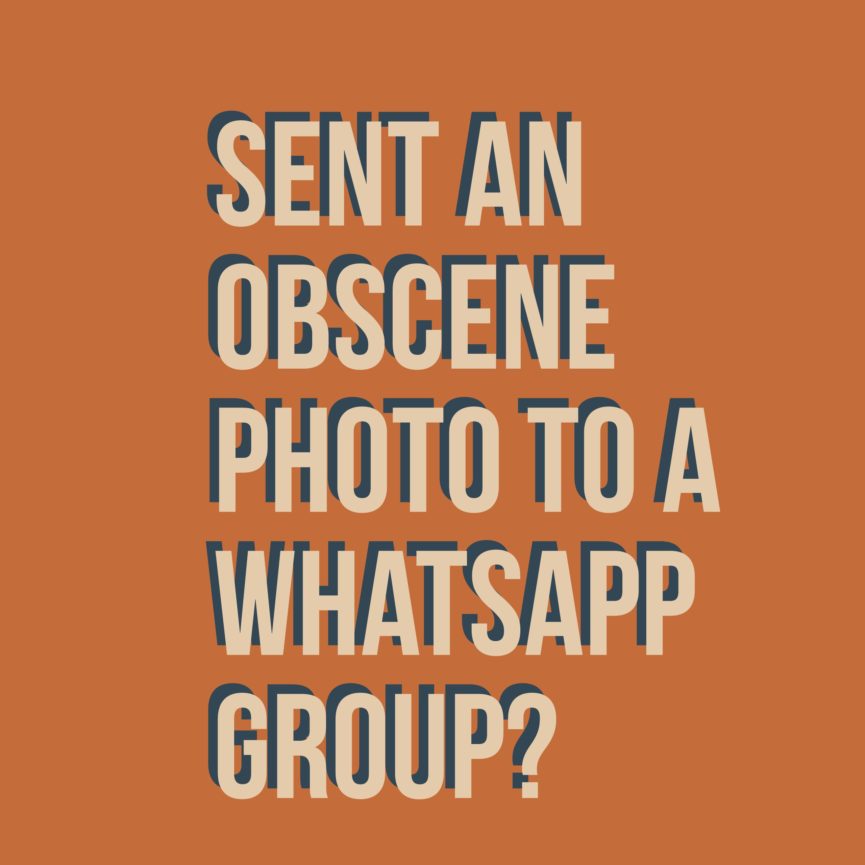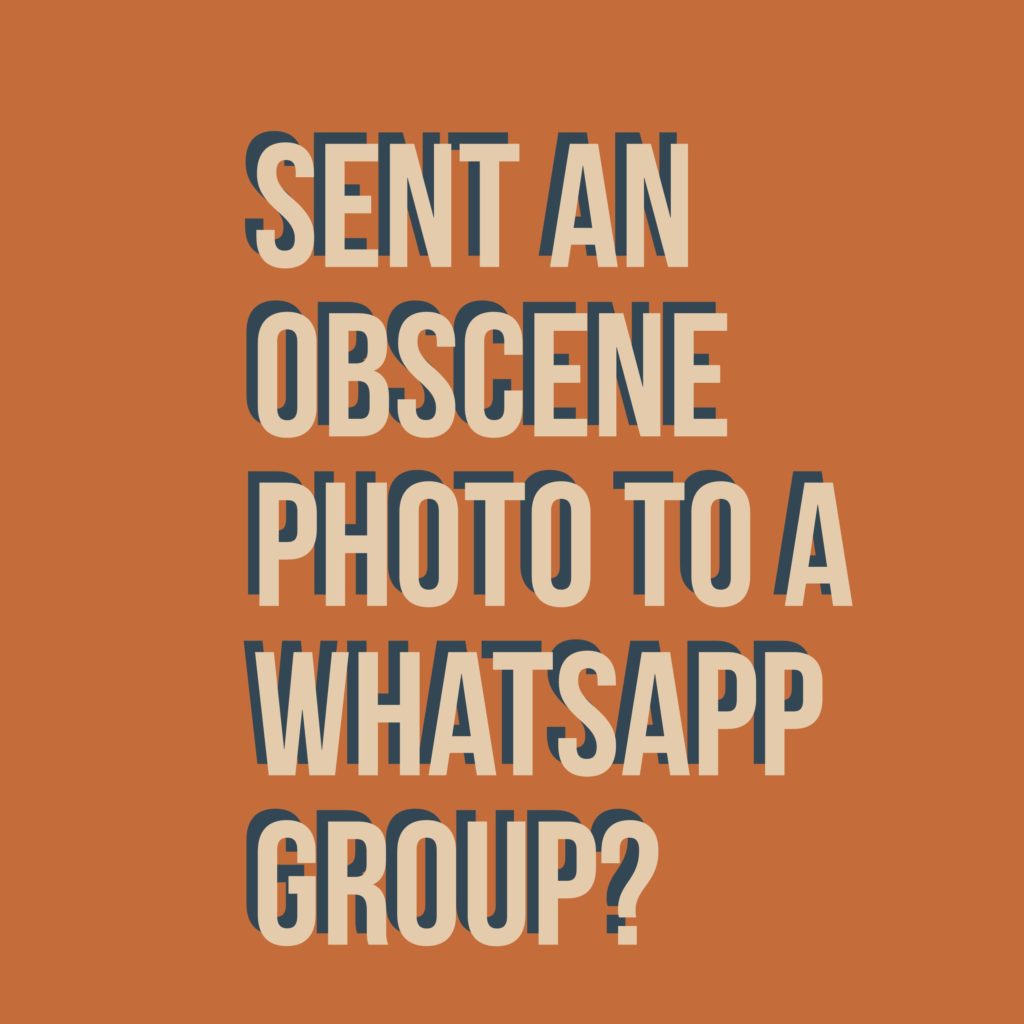Sent an obscene photo on a WhatsApp group?

I’ve been struck with question about obscene content so many times that I feel writing about it is the best solution. I want to analyze this question on two different levels: Moral and Legal. We’ve come across cases where girls and guys have sent their private intimate pictures on WhatsApp groups “by mistake”. The very fact that they were meant to be sent to someone else is alarming as well. The problem with WhatsApp and other instant messengers is that people feel “privacy”. They feel that communication is happening one to one and none else will ever see their intimate moments. The Internet is powerful and Information Communication Technologies are revolutionary but the fact that users feel that there is a different set of ethics online, is not right.
Morally,
Would you click nude pictures, print them, lock them in a box and send via post? If your answer is no, you really need to understand how communication is happening for you right now. There are many intermediaries involved in the entire chain of data flow. We are not the moral police, neither do we want to be. But we are concerned, mostly because of the kind of cases that we receive. So many girls just want to stop that one message from being delivered that ruined their lives. You might read this post and go back to sexting and sharing intimate moments via instant messaging. I don’t hope that some revolutionary change will occur but if even one of the people reading this change their behavior online, it is a great start for us.
Legally,
In law, there is a huge debate all the time about whether something is “obscene”. As per the Indian law, it is pretty much settled but not going into the details of that, I would like to point out Section 67 and 67A of the IT Act, which primarily cover sharing content with people. As for sending nude pictures, I have already covered it here. Even content that is obscene in other forms may fall under Section 67 of the Act and can attract punishment. The word “lascivious” in the Act is pretty wide and can be known to include instances of inciting lust and depraving prurient individuals. That is all the legal lingo that you can avoid for now. Rest assured, It is pretty much common sense for you, at least broadly to identify whether something is obscene. The deeper details are anyway taken up by the courts. Sticking to the question at hand, It makes sense to sum up here that if you have sent a message, an image, a document, a video, a voice note or any media to a WhatsApp group or an individual and that content is obscene, it can attract punishment under law.
So, it is a humble request to please go back to the basics and enforce your offline ethics to your online life as well. As strange as it may seem, just while writing this post, we received another case where a School Teacher forwarded an Email containing a pdf file titled “course plan” to his colleagues’ group on Gmail. He did not check the pdf because it was pretty obvious to him that it would be the course plan. He’s facing litigation as you read this for just one mistake. I’ll not go into the details of the case here but you can always talk to us to know more.

